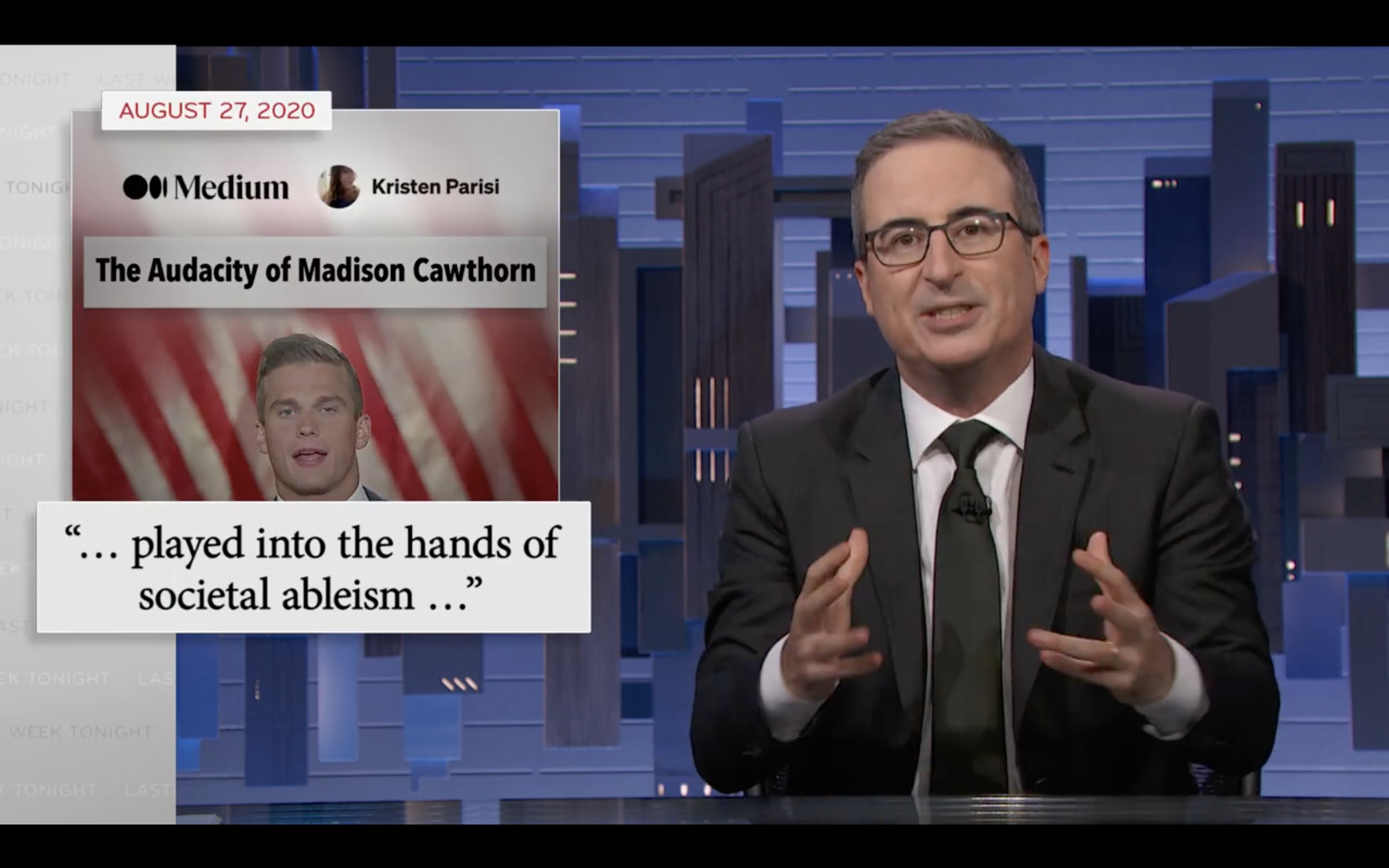A screenshot of a tweet by Ryan Honick (@ryanhonick), posted on March 3, 2020, at 1:59 PM. The tweet reads: 'I don’t know who needs to hear this but the “I never let my disability/pain/illness stop me” is an ableist and harmful narrative. Sometimes chronic issues are debilitating and they do stop you. And you shouldn’t be made to feel guilty about it. Period.'
On March 3, 2020, I wrote a tweet that continues to resurface in conversations about disability and chronic illness:
"I don’t know who needs to hear this, but the ‘I never let my disability/pain/illness stop me’ is an ableist and harmful narrative. Sometimes chronic issues are debilitating and they do stop you. And you shouldn’t be made to feel guilty about it. Period."
I wrote that in the midst of the most painful period of my life, after years of chronic pain. I didn’t expect it to go viral, but it did—and it still does. It has been screen-grabbed, reshared, and discussed across Meta, Instagram, Reddit, Inc., and Twitter/X, popping up repeatedly like clockwork. The response? A mix of gratitude, validation, and, of course, criticism.
Too often, society presents disability as something to be overcome rather than lived with. We hear phrases like:
👉 "Mind over matter!"
👉 "You’re so strong for pushing through!"
👉 "You’re such an inspiration!"
While well-intended, these comments send a damaging message: that acknowledging our limitations means we are weak. They erase the reality of chronic pain, energy limitations, and the simple fact that sometimes, our disabilities do stop us—and that’s okay.
This kind of toxic positivity pressures disabled people to perform an unrealistic level of resilience. It tells us that resting or honoring our limits is "giving up." But accepting the reality of disability isn’t defeat—it’s survival.
Over the years, responses to my tweet have fallen into predictable categories:
✅ “Thank you. I needed to hear this.” Many disabled people found validation in the idea that it’s okay to rest, to pause, to honor what their bodies need.
❌ “This is just giving up.” Some—both within and outside the disability community—claimed my perspective promoted a defeatist attitude. 🤦
These reactions highlight a deeper societal issue: many people are uncomfortable with the idea that disability is, at times, limiting. They need the feel-good narrative of disabled people triumphing over adversity because it reassures them that they would do the same in our position. But disability isn’t a morality test—it’s a reality of life.
Disabled people don’t exist to inspire you. We are not here to be motivational backdrops for non-disabled people. We have our own goals, dreams, ambitions, and struggles—just like anyone else.
Here’s the truth:
• Some days, I can push through. Other days, I can’t—and both are valid.
• Disabled people don’t need to perform resilience for your comfort.
• Accepting our limits isn’t "giving up"—it’s respecting our bodies.
We live in a world that tells us we must constantly justify our existence. That we must "overcome" disability rather than demand societal changes that accommodate us. But disability isn’t a battle to be won—it’s a reality to be acknowledged.





